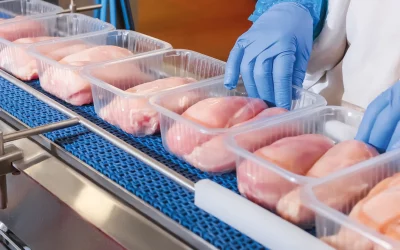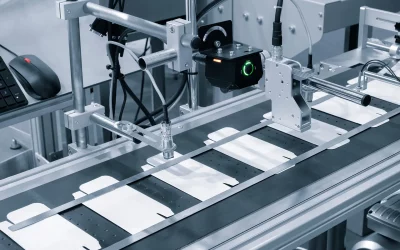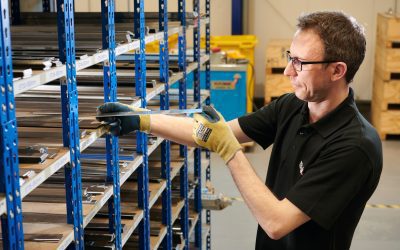Why is sustainability important for food and drink businesses?
Before we delve into the ways in which food and drink companies are becoming more sustainable, let’s take a quick look at exactly why they are doing so:
- Customer demand – today’s consumers are more aware of environmental issues than ever before. So, they want to know that their food and drink have been produced with as little impact on the environment as possible.
- Regulations – as more and more governments take action on the environment, they are passing regulations stipulating that companies must become more sustainable. So, many food and drink companies have a regulatory requirement to reduce their environmental impact.
- Investor pressure – investment companies are increasingly taking it into their hands to force the companies in which they invest to become more sustainable.
- Reduced costs – by pursuing sustainability, food and drink companies are able to reduce their costs. Installing solar panels and the energy-efficient plant is helping to bring down their manufacturing costs over the medium to long term.
Those are just a few of the reasons why food and drink companies are embracing sustainability.
Now, let’s take a look at how they are embracing sustainability.
Sustainable sourcing
More than ever, consumers want to know the provenance of their food and beverages. They want to know how far their food has travelled and how it has been produced.
Because of this, food and drink manufacturers are increasingly sourcing their ingredients from local sources, thus reducing ‘food miles’. They are also sourcing their ingredients from organic and fair trade sources – particularly to cater towards those consumers who lean towards ‘clean label’ products.
Packaging
Packaging has traditionally been one of the areas of food and drink businesses that has resulted in waste, carbon emissions and more.
As a result, even small changes in packaging can result in big gains for sustainability.
So, food and drink businesses are increasingly moving towards more sustainable packaging principles such as the use of 100% recycled materials, biodegradable materials such as cornstarch, and reduced packaging sizes.
One development of particular note is the increased use of bioplastics – plastics that are made from plants or other biological materials rather than fossil fuels. Whilst many bioplastics are not currently biodegradable, this is starting to change with a number of startups working on biodegradable and even edible bioplastics.
Some food and drink businesses are going a step further and embracing ‘intelligent’ packaging. This is packaging that incorporates sensors which monitor factors like temperature outside of the packaging, humidity and more, thus reducing food waste.
Plant-forward products
The environmental impact of meat consumption is making more and more media headlines.
And, given that the production of 3.5oz of meat protein produces 50kg of greenhouse gases, it’s not surprising!
As a result, forward-looking sustainable food and drink companies are now producing more plant-forward products. These are products which make plants the star of the meal, either reducing meat to a minimum or eliminating it altogether.
The industry is also introducing more meatless proteins such as Beyond Meat and the Impossible Burger as a way of encouraging omnivores to eat less meat.
Reducing food waste
Food waste is a major sustainability issue. To give you an idea of how major, consider the following: around one third of the total food the world produces (1.3 billion tons), is wasted.
That’s a staggering number and is one of the reasons why food and drink companies are making significant efforts to reduce food waste within their production and delivery processes.
Actions include putting contingency plans in place for broken production lines. For example, if a production line breaks down, the food that’s waiting to be processed is stored safely and thus saved, until it can be eventually processed.
Other actions include using food materials left over after processing (e.g. vegetable peelings) for other purposes such as creating natural fertilisers.
Manufacturers are also making efforts to reduce the amount of food that is wasted during delivery by creating more durable, protective packaging.
Energy efficient plant and equipment
The production of food and drink uses a considerable amount of energy – the production of which can lead to carbon emissions.
To reduce the amount of energy required in food and drink production, manufacturers are attempting to make their plant more efficient by using predictive analytics to keep their plant and other equipment in top working order, reducing the likelihood of inefficiencies emerging.
Increasingly, manufacturers are using plant and equipment that feature Human Machine Interface (HMI) technologies which help to create better operational efficiencies and reduce energy expenditure. Other technologies include heat reclamation, whereby heat generated by equipment is captured and incorporated for use in other processes elsewhere.
Manufacturers are also transitioning to renewable energy sources including solar, thermal energy and more as a means of making the energy they do use, greener.
Intelligent distribution
By ensuring that food and drink only travels short distances from the producer to the consumer, it’s possible to significantly reduce carbon emissions.
As such, more and more food and drink manufacturers are embracing intelligent distribution, and local production.
By producing their goods closer to where they’ll be purchased and consumed, manufacturers are able to reduce the amount of miles their products have to travel using polluting road transport.
Longer-lasting equipment and components
Another trend that we are seeing is manufacturers choosing to use longer-lasting components in their processing machinery.
By using longer-lasting machine blades for example, manufacturers are able to not only reduce their environmental footprint by using fewer blades over time, but can achieve cost savings on the operation and maintenance of their critical machinery.
Find out more about machine blades that stay sharper for longer now
For the latest food and drink industry production news and insights, explore the MRMK news and insights hub…
Packaging Sustainability Trends for the Food Industry | Food Production Trends You Need to Know in 2022 | Everything You Need to Know About Industrial Meat Processing and Packaging Knives


 +44 (0) 1909 519815
+44 (0) 1909 519815 


